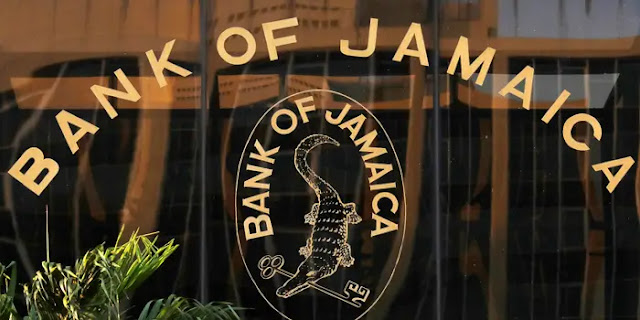100 Basis Points Dash!
Let me make a departure from my usual commentary and discuss a pertinent economic issue, in an area where I spent a good portion of my professional and research career.
On September 30, 2021, the Bank of Jamaica’s Monetary Policy Committee agreed to reduce its level of monetary policy accommodation by increasing the policy rate by 100 bps to 1.50 percent, up from 0.50 percent.
Since March 2019, the benchmark interest rate refers to the interest paid on overnight balances in the current accounts of deposit‐taking institutions at the Bank of Jamaica. Previously the policy interest rate was the BOJ Interest rate on one month Certificate of Deposits (BOJ 30-Day CDs), and between July 2017 and March 2019, the overnight deposit for deposit-taking institutions.
The graph shows a steady decline of the policy interests between July 2017 and August 2019 to the effective price floor of 0.50. The policy interest rate was maintained at 0.50 percent for 25 months.
With Inflation targeting being the bank’s primary focus, most monetary policy implementation decisions have been geared towards maintaining the inflation target of 4.0 -6.0 percent. With the annual point-to-point inflation in August 2021 being 6.1 percent marginally above the target, an increase was expected; however, the magnitude of the increase might be too drastic a measure.
Inflation sentiment is an evergreen problem in Jamaica; many business interests with memories thirty years into the past are very well aware of the inflation rates above 100 percent in 1992 and the 20s in 2008 after the global financial crisis. So why should the expectation be any different during an ongoing global pandemic?
Currently, the Corona Virus pandemic has shifted the way business is done. The global supply chain has been severely impacted, probably the worst form of upward inflation pressure, cost-push factors. The pandemic has causes and a real shock to worldwide shipping and commodity markets, which increases production costs. Initially, many companies will absorb production costs, which by simple accounting leads to reduced profits on their income statements; at some point, however, costs will have to be pass on to customers, which for the most part will be a permanent increase. The income shock of the pandemic has already impacted the purchasing power of most consumers globally.
A further note in rising shipping costs is the relationship between higher shipping costs and delays in the lead and waiting times since suppliers will only ship full containers. Many major shipping markets are seeing increased wait times at port of call. Unfortunately, the net effects are not just inflation but more significant global issues surrounding international trade.
Global matters aside, inflation in Jamaica has been steady despite the pandemic. The graph above shows the monthly movements in annual point-to-point inflation within the inflation target band, which incorporates the entire pandemic period. The only breaches of the inflation target were June 2020 and again in August 2021.
However, based on global trends, local prices in many sectors are expected to increase within the short to medium term; thus, the signaling of the Central may be an indicator of the months ahead.
However, many stakeholders in monetary policy concern themselves with the levels of interest rate pass-through. The interest rate pass-through describes how changes in a reference rate (The BOJ policy Interest rate) transmit to bank lending rates.
The most recent empirical literature on interest rate pass-through in Jamaican is the transmission mission process, mainly speed and size are generally weak or suboptimal. While the money markets respond appropriately to changes in the policy rate, in other words, transactions among brokers, the lending market appears to be more sluggish to a pass-through effect. One of the primary reasons for the low-interest-rate environment was to encourage increases in private sector credit. Essentially banks would have space to create loans to businesses of varying sizes to undertake investment projects. However, Jamaican banks tend to be more risk-averse and collateral-loving and prefer short-term loans, mortgages and motor vehicle loans, or businesses providing collateral.
Secondly, a low-interest-rate environment encourages investments in the stock market, and the Jamaica Stock Exchange indices have seen tremendous success over the past five years. The Covid 19 pandemic has reduced the levels of adequate returns, and the volume and values of transactions have steadily declined. At the same time, a vibrant retail market exists, institutional investors have been less active since the onset of the pandemic. Increasing interest rates will influence the stock market and make Fixed Income instruments relatively more attractive in the short to medium term. Since the bank has indicated that rates may increase steadily over time, it is a reasonable expectation that institutional investors can expect Fixed Instruments, marked to the policy rate, to increase their returns.
With the limited pass-through effect, only time will tell who will benefit from the 100bps jump in the policy interest rate.
Economist





Comments
Post a Comment